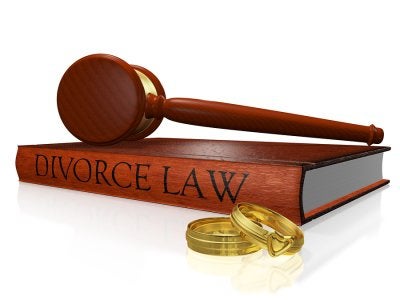-
Avoid These Common Child Custody Mistakes
When you’re going through a divorce and children are involved, the stakes are higher and you have many more factors to consider throughout the divorce process. It’s very important to hire an experienced lawyer for child custody issues during a divorce or legal separation in order to protect your rights as a parent and protect your child. Here is a look at the most common mistakes parents make during child custody cases and how hiring a child custody lawyer in Owings Mills, MD, can help you avoid mistakes like these.

Not Understanding Your State’s Child Custody Laws
Many parents go into a child custody case assuming that because they are the child’s parents, their rights are automatically protected and they will get whatever they ask for. However, many different factors can impact your custody agreement and influence the court’s decision. When you work with an experienced child custody attorney, they can help you understand your state’s child custody laws so that you know what to expect and how to best prepare for the court process.
Thinking You Don’t Need a Formal Child Custody Agreement
Another huge mistake that parents make is thinking that they don’t need a formal child custody agreement in a divorce or separation. Even if you and your former spouse or partner get along, it’s in your best interest and the child’s best interest to enter into an agreement and sign formal child custody papers. You may get along now, but circumstances can change in the future, and it’s best to protect yourself from the start.
Failing to Prioritize the Child’s Best Interests
In some cases, conflict between the parents can end up impacting negotiations for child custody, child support, parenting time, and other factors involved in the care of the child. Some parents end up putting their own emotions and interests ahead of those of their child, which can have a significant negative impact on the child. You and your former spouse or partner should work with an experienced family law attorney, mediator, or child advocate to ensure you’re putting your child’s best interests first.
Engaging in Negative Behavior
Even if you and your former spouse or partner don’t get along or have trouble communicating, you should take care to avoid engaging in negative behavior. Negative behavior can influence a judge’s decision in your child custody case and also have detrimental effects on your child’s happiness and mental health.
Ignoring Legal Advice
When you work with an experienced divorce attorney or child custody attorney, they will give you expert advice that is based on the details of your case, their deep knowledge of child custody laws, and their years of experience dealing with cases that are similar to yours. Take their advice seriously and follow their recommendations and guidance. Ignoring their advice could have a negative impact on your case.
Talking Badly About the Other Parent to the Child
Many judges explicitly prohibit parents from speaking badly about each other to their child. If a court finds evidence that you have been saying negative, harmful, or toxic things about your child’s other parent to the child, it can affect your ability to retain custody or get the parenting time you want. You may also harm your relationship with your child.
Not Communicating Effectively With the Other Parent
Entering into a fair child custody agreement and maintaining a co-parenting arrangement requires clear, healthy communication. If you don’t feel that you can communicate effectively with your former spouse or partner, you may need to consider using a third-party mediator or counselor to help you ensure consistent and clear communication.
Not Being Properly Prepared for Court or Coaching Your Child
Your child custody attorney will help you prepare for court and understand the legal process. If you are not prepared for court, negotiations, or meetings, your case may suffer and you may be seen as irresponsible. Another common mistake that parents make in child custody cases is coaching their child to say certain things. A judge can usually tell if a child has been coached by one of the parents.
Lying to the Judge or Your Attorney
Being honest with your attorney and the judge or mediator in your case is crucial. Omitting facts or information or outright lying can make it harder for your attorney to handle your case, and it can have a negative effect on the outcome of your parenting or child custody agreement. In some situations, a lie can be construed as perjury and can result in legal consequences. Be as honest and straightforward as possible throughout your case.
How Can These Mistakes Affect Your Child Custody Case?
Making these mistakes can have a negative outcome on your child custody case. You may not get the child custody agreement or parenting time that you want, or you may not get physical and/or legal custody of your child at all. Some of these mistakes can also impact your relationship with your child and affect your child’s mental health. It’s best to work with an experienced attorney throughout the divorce, legal separation, or child custody process to avoid mistakes like these.
How Can the Law Office of Kent L. Greenberg Help?
Kent L. Greenberg is a skilled, experienced child custody attorney in Owings Mills, MD, who works with clients throughout Maryland. He can evaluate your case and gather information, documentation, and evidence needed to support your rights as a parent. He can work closely with your former spouse or partner’s attorney and negotiate on your behalf. He can also act as a mediator and help you navigate conflicts or complex situations. Call the Law Office of Kent L. Greenberg now or contact us online to schedule a consultation and find out how Mr. Greenberg and our team can help you navigate complex child custody issues in Maryland.
-
How a Prenuptial Agreement Can Impact Your Divorce?
Given the consistently high divorce rates in modern times, many couples consider it prudent to establish a prenuptial agreement before the wedding. A prenup can protect both spouses, although each of them should consult their own family lawyer in Owings Mills before signing the document. If the marriage doesn’t last, a divorce attorney can offer state-specific guidance regarding the impact of the prenup on the divorce settlement.
 The Benefits of a Prenup
The Benefits of a PrenupDivorce doesn’t always have to be a long, drawn-out process filled with arguments and ill will. Divorce mediation is a viable alternative, and having a prenuptial agreement in place may make mediation more likely to succeed. That’s because a prenup can take care of many of the issues that need to be settled before a divorce is finalized. Even if mediation doesn’t succeed in settling the rest of the issues, or if you and your spouse would rather not try mediation, having a prenup in place can lessen the headaches of a court proceeding. It may reduce discovery, and in doing so, reduce legal fees.
The Disadvantage of a Prenup
The main downside of prenuptial agreements isn’t one that will apply to every divorcing couple. It will occur if your spouse decides to contest the validity of the agreement. Your spouse will need a legally acceptable reason for asserting that the agreement is invalid. Even if grounds to contest the validity are lacking, the process of proving the validity of the document can make the divorce take much longer. A valid prenup is one that was not prepared or signed with any of the following present:
Fraud (i.e., hiding assets)
Duress or coercion
Incompetence
Undue influence
Mistakes
Unconscionable or grossly unfair
It’s worth noting that most prenuptial agreements are found to be valid. If you had your prenup prepared by a family court lawyer, it’s almost certainly going to hold up in court.
The Ways Your Prenup Can Work for You
The exact ways in which your prenup will affect your divorce depends on its provisions. Bring a copy of the agreement to your consult with the lawyer. Your prenup may affect the following areas:
Retirement accounts
Life insurance policies
Division of debts and assets
If you share children with your spouse, your prenup cannot legally affect child custody or child support arrangements.
““
-
Fault-Based Divorce: How to Prove Adultery
Divorce law in Maryland is notoriously complex. In many cases, spouses must endure a lengthy legal separation before the divorce can be finalized. If you can prove fault-based grounds for absolute divorce; however, you may be able to forego the waiting period and move forward with your post-divorce life. If your marriage has deteriorated because your spouse has committed adultery, you should speak with a divorce lawyer near Owings Mills. You may be surprised to learn that proving adultery could be easier than you think.

You do not require definitive proof of adultery.
Many spouses assume that it is necessary to provide hard proof of their spouse’s adultery, such as pictures or videotapes. Although this is a possibility, it certainly isn’t necessary. Maryland divorce law does not require spouses to offer definitive proof that adultery existed. Circumstantial or indirect evidence is sufficient.
You do need to prove your spouse’s disposition of affection.
Maryland divorce law does require a spouse to demonstrate that the other spouse had a “disposition of affection” toward a third party. This simply means that the individual somehow displayed his or her affection toward someone who is not married to that individual. This could take the form of holding hands, kissing, hugging, or even suggestive dancing. For instance, a friend of yours may have witnessed your spouse behaving in an affectionate manner with someone else. The testimony of your friend, perhaps complemented by pictures, may be sufficient to prove your spouse’s disposition of affection.
You do need to prove that an opportunity for adultery existed.
In addition to proving your spouse’s affectionate behavior, you must prove that he or she had the opportunity to commit adultery. This opportunity has to be more conclusive than the mere fact that you weren’t in your spouse’s presence on a 24/7 basis. For instance, you might demonstrate that your spouse spent time in a hotel room with the other individual or was seen entering the residence of the other individual.
You could offer substantial proof if it exists.
Although conclusive proof is not required to prove adultery, it can certainly help your case. It’s important to be honest with your divorce lawyer about your suspicions of adultery. If you were diagnosed with a sexually transmitted disease (STD), this may be all that’s needed to prove adultery. If your spouse became pregnant and paternity tests prove that the child is not yours, this certainly proves adultery.
-
Gathering Evidence for Your Child Custody Case
Going through a divorce and establishing child custody requires a lot of preparation and paperwork. It can start to feel like a full-time job in itself, which is one of the many reasons why you should hire a child custody attorney near Owings Mills to do the heavy lifting for you. Your lawyer will guide you in collecting the evidence necessary to present a compelling argument in court.
Parent-Child Contact
If your child isn’t currently living with you, make an effort to contact your child frequently. Call or use video conferencing software to maintain your relationship with your child, and to help him or her cope with the significant changes of divorce. Each time you speak with your child, keep a record of the date, time, and duration. Make notes about whether the other parent attempted to discourage contact between you and your child. If your child is currently living with you, you can still keep a record of contact between your child and the other parent. If the other parent doesn’t have frequent contact, the judge might think that there isn’t much of a relationship between them. Alternatively, the judge might consider whether you are discouraging contact.
Parent-Parent Contact
Family court judges frown upon contentious interactions between parents when a child is a witness. Never provoke an argument, and never contribute to one. Instead, keep a record of all the times your ex disparages you in front of your child, shows an unwillingness to co-parent, or shows signs of mental or emotional instability.
Visitation Logs
Judges like to see that both parents are encouraging the child to have a healthy relationship with the other parent. If your child currently lives with you, you should support a robust visitation schedule with the other parent. If you’ve moved out of the family home, make every effort to see your child regularly. Both parents should keep records of when the visitation occurred, how long it lasted, and whether the visiting parent was late for the pick-up or drop-off. Additionally, make notes about whether the child was returned to you hungry, unhappy, or injured—or with homework incomplete.
““
-
Medication Disputes and Co-Parenting: A Look at Common Problems and Solutions
Even when parents are both committed to co-parenting cooperatively for the benefit of their children, disputes are inevitable. One common area of conflict involves medications and other medical decisions. Although some types of child custody put the power to make these decisions firmly in the hands of one parent, in other cases, parents each have the right to weigh in, and disagreements may arise. Your family attorney in Owings Mills can help you navigate these touchy issues when they occur. Here is a look at some of the common problems that happen regarding medication disputes in co-parenting agreements—and how you can overcome them.
 Common Medication Disagreements
Common Medication Disagreements In most cases, parents do not disagree about giving children medicine for acute illnesses, such as an antibiotic for bronchitis. Instead, parents may find they are not on the same page when it comes to managing chronic conditions, particularly ADHD or ADD. One parent may believe that the child needs to be on medication for attention deficit and/or hyperactivity, while the other parent doesn’t believe in giving children these kinds of medications. Other common areas of dispute are antidepressants or other medications for psychiatric conditions and vaccinations.
Solutions for Medication Disputes
Solving a medication dispute may be as easy as reviewing your child custody agreement. If one party has sole legal custody, then he or she has the exclusive right to make medical decisions for the children. If you have joint legal custody, then both parents must come to agreement on issues regarding medical decisions. If you can’t come to agreement, consult your family law attorney. He or she may recommend mediation, or in some cases, you may wish to return to court for a review of your custody agreement. Even if you haven’t experienced a dispute about medications or other aspects of medical care, it can be helpful to ask your family lawyer to include stipulations about how medical care will be addressed in your child custody agreement, so you can reduce the risk of future complications.
““
-
A Spouse’s Guide to Cruelty and Vicious Conduct
Maryland divorce law is quite restrictive, although a recent change in the rules relaxed the requirements for couples who do not share children and reach agreements on other matters. In nearly all other cases, spouses must live apart for 12 continuous months before they can be granted an absolute divorce, rather than a legal separation. An exception to this rule applies when a spouse has fault-based grounds for absolute divorce, such as cruelty and excessively vicious conduct. A family law attorney near Owings Mills can discuss your case with you and determine if a fault-based divorce is right for you.

Physical Violence
For a court to grant a divorce on the basis of cruelty, your spouse’s actions must be egregious to the extent that they could be said to significantly jeopardize your health or permanently eliminate your happiness. A court is more likely to determine that physical violence constitutes cruelty if the spouse engaged in a pattern of physical violence, has threatened physical violence, or has engaged in mental abuse. Divorce may be granted if this abuse was directed to either you or to a minor child. Acts of physical violence may include instances of marital rape.
Mental Abuse
Courts give mental abuse significant weight when considering whether to grant an absolute divorce for fault-based grounds. Generally, mental abuse must be egregious. For example, the use of profane language alone might not be sufficient to prove cruel treatment. However, the court might consider the use of profane or indecent language to belittle the spouse or otherwise compromise his or her self-respect. Other types of mental abuse include controlling behaviors like isolating the spouse from other family members and friends. Mental abuse can include taunting and making public, false accusations for the purpose of debasing the spouse.
Evidence
Proving cruelty and excessively vicious conduct in court requires the use of physical evidence or witness testimony. Your family lawyer can guide you in establishing proof, such as through the use of medical records, photographs of injuries, and written communications.
““
-
A Divorced Dad’s Guide to Co-Parenting
Co-parenting is much more than just exchanging the kids for visitation. It’s the process of working collaboratively and amicably with your ex for the sake of your kids. Divorce experts tend to agree that co-parenting is the most effective way to raise kids who are well-adjusted and have healthy relationships with both parents, despite the parents’ divorce in the Owings Mills area.
Watch this quick video for some helpful tips on successful co-parenting. You’ll learn the value of reaching out to professionals, like counselors and divorce mediators. You’ll also learn that child custody and visitation agreements might be modified as circumstances change and the children grow older. Always remember to prioritize the well-being of the kids, and set aside the personal feelings you have toward your ex.
-
Will Remarriage Affect Your Child Support Payments?
In most cases, getting married again after a divorce will not affect a parent’s obligation to pay child support or the right to receive it. Since divorce-related laws do vary from state to state, you should consult a family law attorney near Owings Mills for legal guidance for your specific situation. If you are the noncustodial parent who is paying child support, you should not expect to have the payments increased solely because you remarried. Child support law doesn’t confer responsibility for the children to the new spouse.
If you are the custodial parent who is receiving support payments, you should continue to receive the same amount as before you remarried, regardless of whether your household now has two incomes. Some custodial parents who remarry consider canceling the child support agreement altogether. However, it’s still the noncustodial parent’s obligation to provide for the children’s needs. If child support payments aren’t needed for daily expenses, they could be contributed to a college savings fund instead.
““
-
What Are the Custody and Visitation Rights for Stepparents After a Divorce?
Stepparents in general have an undeservedly bad reputation, despite the fact that many of them form strong emotional bonds with their stepchildren, and invest considerable time and effort taking care of them. When a stepparent and biological parent divorce, it’s usually thought that the stepparent has no parental rights. However, divorce law in Owings Mills has been slowly catching up to the modern reality of blended families. Since child custody laws are subject to change, stepparents are encouraged to visit an attorney for the latest information about their legal rights.

-
Whether the child will suffer harm without visitation with the stepparent
-
The extent of assistance and financial aid provided by the stepparent for the child’s rearing
-
The duration of the stepparent’s parental role with the child
-
The degree to which the stepparent has held an active, significant role in the child’s daily life
-
The strength of the relationship between the child and the stepparent
Award of Custody
Divorce law presumes that it’s in the child’s best interests for the biological parent to retain custody, rather than the stepparent. However, there are some occasional exceptions. If both of the biological parents are found unfit to raise the child, the stepparent may be awarded custody. Parental fitness is determined on a case-by-case basis, but may be considered when any of the following factors apply:
-
Incarceration
-
Abandonment
-
Child abuse or neglect
-
Substance abuse
-
Severe psychiatric illness
Of course, if both of the biological parents have died around the time of the divorce, then the stepparent will also be more likely to secure custody.
Establishment of Visitation
Although it’s challenging for a stepparent to get custody, he or she may be more likely to receive visitation. Visitation may be awarded if it’s determined to be in the child’s best interests. The court will consider whether an ongoing relationship with the stepparent will enhance the child’s quality of life.
““
-
-
Paying Taxes on Alimony and Child Support
Divorce usually results in difficult financial situations, which your alimony lawyer in Owings Mills will help you sort through. You may also wish to consult an accountant when it’s time to file your tax return, instead of handling tax changes yourself. If you’re the parent with primary physical custody of the child, you’re entitled to receive child support. These payments do not have to be reported as income—you’ll receive them tax-free to defray the expenses of rearing your child. If you’re awarded alimony after the divorce , you will typically have to report these checks as income, and they’ll be subject to taxation.
You might find yourself making alimony and child support payments after the divorce. In this case, your tax situation will be similar to that of your ex’s, only in reverse. You cannot deduct child support on your taxes in order to reduce your tax liability. However, you can usually deduct alimony payments, provided those payments are made in cash, rather than property. Additionally, alimony payments must be court-ordered if they are deducted.

